
In the season finale of "Top Chef: Chicago," the fourth season of the show which aired back in 2008, the finalists were tasked with making a four-course meal to serve as one of the finest meals of their lives, which would, ostensibly, cinch the win for them.
For her main dish, finalist Stephanie Izard made a lamb course with mushrooms, pistachios and a blackberry and olive tapenade; I remember being utterly fascinated by the combination of colors and flavors.
Soon thereafter, Izard was crowned Top Chef, when then-host Padma Lakshmi announced the winner, telling her "Stephanie: You are 'Top Chef.'" At that time, Izard joined three men as "Top Chef" winners, but obviously, much has changed since those halcyon days — from the show's host, to the amount of women who've won the crown (coincidentally enough, Laskhmi's replacement and current host, Kristen Kish, was actually the second woman to win!)
I've always been inspired by Izard. Her easy-going, good-natured nature, her cool confidence, her amazing culinary skills, the way she's never "doing too much," as many reality TV competitors often do — Izard merely cooked to an amazing degree, treated others normally and presented herself as a formidable contender, never getting ostentatious or boastful — just simply cooking exceptional food and letting that speak for itself.
In culinary school, we had a "banquet" on the day after the last day of class and had to cook a progressive, three-course meal in groups comprised of our classmates. In my group, sandwiched between my classmates' appetizer and dessert courses, I presented a lamb chop dish with blackberry gastrique and a toasted pistachio gremolata — obviously inspired by Izard's season four finale main course.
Salon Food recently had the chance to speak with Izard, who spoke about her time on the show, her experience in restaurants since, her fond memories of her opting to get into the restaurant industry and her earliest memories of food and cooking, the first annual FOOD & WINE Classic in Charleston — where she'll be presenting — and much more.
The following interview has been lightly edited for clarity and length.
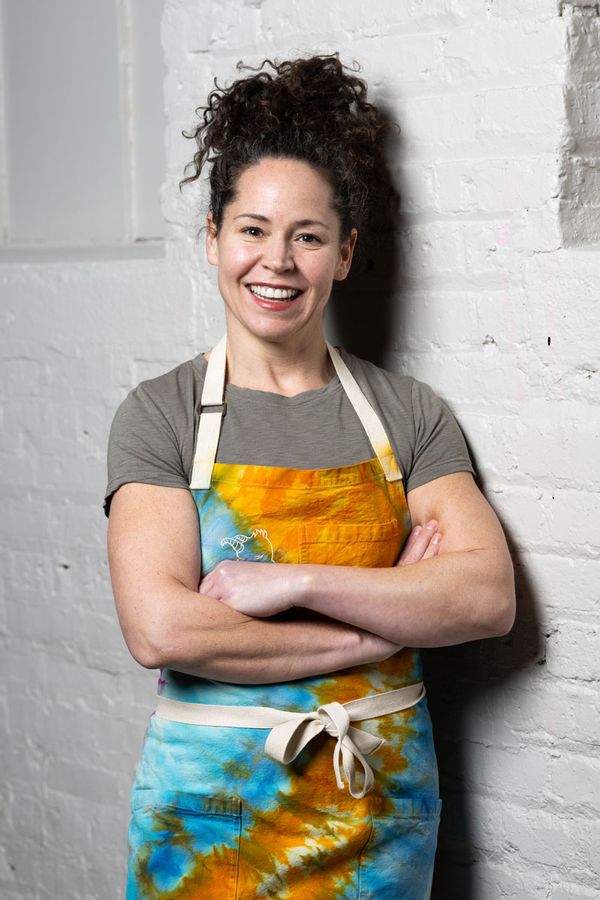
Hello! For those unaware of your journey since winning "Top Chef," can you break it down for them?
A lot has happened since "Top Chef!" I currently own six restaurants: Girl & the Goat, Little Goat Diner, Cabra and Duck Duck Goat in Chicago and Girl & the Goat and Cabra in LA. I’ve won a few awards, written a couple of cookbooks, been on some awesome TV shows, traveled to beautiful places — and have had a lot of fun doing it all!
Do you have a number one favorite ingredient to work with?
It’s hard to pick just one, but if I had to, it would be Red Boat Fish Sauce — I use it in lots of recipes and could practically drink it for breakfast.
Is there a standout menu item for you across all of your restaurants? Or one that particularly resonates with customers?
One dish that has really resonated over the years is the Roasted Pig Face at Girl & the Goat — it’s been on the menu since day-one and is still one of our most ordered dishes.
What was the biggest lesson or takeaways you gleaned from competing in — and winning — "Top Chef"?
I still look at "Top Chef" as a huge jumping off point for me and for my career — I learned how to work under pressure and it tested my creativity and resilience and here I am, so many years later — still competing on TV shows and opening restaurants!
What stands out for you as a formative moment that got you into cooking or food at large?
Some people become a chef because they grew up with a mother who was not a great cook or one that was a fantastic cook that inspires. My mom was the latter.
Growing up, we would cook food from around the world. My mom, my sister and I would get together to plan a menu for the week with recipes from cookbooks, Gourmet magazine and my mom’s recipe cards. We would go to the grocery story, shop and cook all together. My mom made mandarin pancakes,, Yorkshire pudding and other fun dishes.
As I got older, I didn’t really think about being a chef. It wasn’t something you thought about in the early 90’s. I attended college at the University of Michigan and I found it tough to get motivated about my future. My first job was at Olive Garden, first as a host and then a server. I loved it and especially all the unique personalities that worked there.
It was a conversation with my dad who suggested [that] after college, I attend culinary school. I did and went to Scottsdale Culinary. From the first day I walked in, I knew I was on the right path. I never missed a moment of class, the polar opposite of college where I had to drag myself to class.
What would you say are your three most used ingredients?
- Fish sauce!
- Anything pickled, like fresnos or onions
- Lot of herbs — my favorites are mint, cilantro and basil
What is your favorite cooking memory?
Definitely cooking with my mom. My mom and her friend Mrs. Cole would get together once a month or so and make mandarin pancakes. Then each family would have Mu Shu for dinner that night.
It’s just a fun family family shared dish because it is interactive . . . you spread a tiny bit of hoisin on your super thin and chewy pancake, then fill with a heap of the pork and veggie mixture.
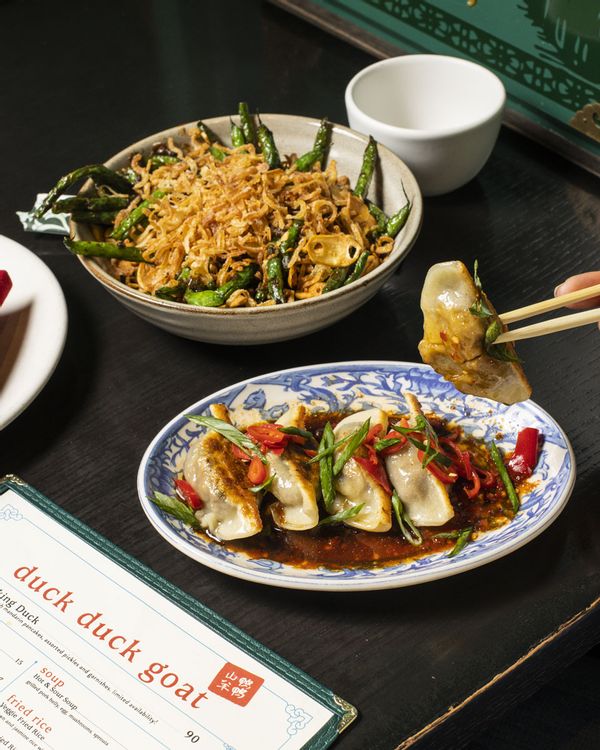
What’s your biggest tip for cutting down on food waste?
One tip that I use a lot when cooking at home, is if a recipe calls for a small amount of produce you can check the grocery store’s salad bar for the item and buy exactly as much as you need.
How do you practice sustainability in your cooking and in your restaurants?
The biggest thing that we do in all of our restaurants is make sure we use every last bit of our ingredients, especially proteins. Leftovers are used for stocks and family meal.
You’ve been on many shows since your "Top Chef" win. How do they compare? How do the competition (and anxiety) levels differ?
It turns out the anxiety just gets worse as you get older, [laughs] but I still love to hang out with my chef friends and feel very fortunate to have these opportunities.
Is there a particular dish from your "Top Chef" tenure that you are still especially proud of? I was such a fan of so many of your inventive, delicious-sounding dishes. One of your finale dishes was the inspiration for the dish I made for the graduation banquet in culinary school — so thanks for that!
It’s hard to remember back that far!
One moment that really sticks out was when Anthony Bourdain was a judge and he loved a cheese plate/dessert that I made. It combined sweet and savory in a surprising way and it was always exciting to create something that he liked!
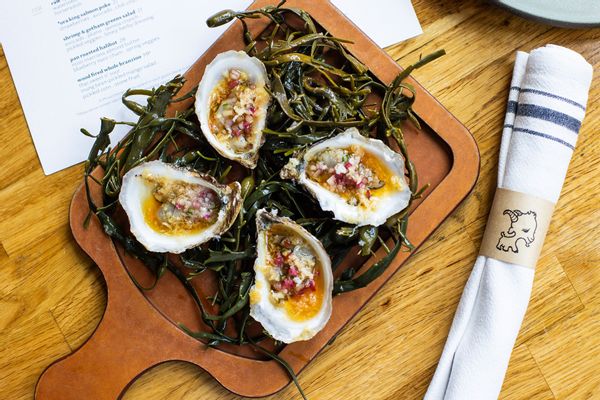
I know you'll be cooking at the Shirley Chung fundraiser dinner next month, "Chefs for Shirley." How did that come about? Did Guy Fieri contact you? Hopefully you can all raise tons and tons of money for her and her family!
Guy is great at always supporting everyone in our group of chef friends. He brought a few of us together to help organize the event and then utilized his team at the Guy Fieri Foundation to pull together a lot of the details. I’m excited to raise a lot of money for Shirley — she’s the best.
What did the Top Chef “incubator” teach you? I spoke with Buddha just after his win last year and he referenced how it can be so great to singularly focus on cooking — not bills, not customers, not the daily minutiae of running or working in restaurants, etcetera. I always thought that was a great point.
One of my favorite parts of being on Top Chef, and all competition cooking shows, is the lasting friendships and being surrounded by such talented chefs. Not only does it push me to do better, I’m constantly inspired by their creativity and ideas.
Tell me a bit about your seminar at the FOOD & WINE Classic in Charleston, "Outside the Brunch Box: Diner Favorites with a Twist"? How do you anticipate the event differing from the Food & Wine Classic in Aspen?
This will be my first time visiting Charleston, I’m very excited. I’ve always wanted to go and experience the amazing culinary scene there.
The folks who come to Food & Wine events, like Aspen, are usually excited to hear from chefs at demos, not only for the story-telling aspect, but to get recipes and cooking tips. The brunch recipes that I’m focusing on this time around are really unique and have a number of components, so that the guests can recreate the entire recipe or take bits and pieces to use in other dishes.
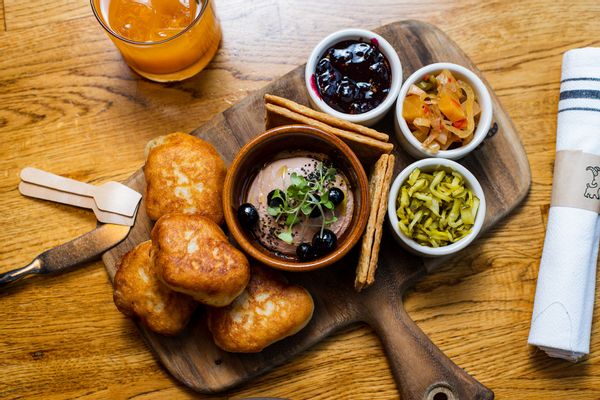
You've been running Girl & the Goat for quite some time now. What do you attribute its success to?
The Girl & the Goat team, as well as my other restaurant teams, are amazing! So many of the employees there today were part of the original opening team and have become family. Chicago has also been so supportive and continues to embrace us 14 years later.
How do you differentiate between all of your restaurants and restaurant concepts?
Each of the restaurants have completely different menus, concepts and themes, but like the “goat” in each of their name, there is a unifying thread: our team and our values. We try our hardest to make sure that each of the restaurants are fun and inclusive workplaces where our team wants to spend time. We definitely take our food seriously — but we don’t take ourselves too seriously.
I love your cookbooks, by the way — any plans to release another?
At some point, for sure!
Can you talk a bit about "The Curious Chef"?
In "The Curious Chef," I get to spend time with chefs in all different forms – from home cooks to cooks with hidden gem street stalls, pop-ups and secret restaurants. I was so inspired by everyone I met on the show and got to eat some delicious food!
If I ever get to Chicago, I've always wanted to try Duck Duck Goat. What inspired you to explore that concept?
We used to host small, themed pop-up dinners at Little Goat Diner and one of the first ones we did was my take on Chinese food. I remember taking home leftovers that night and eating them on the couch, thinking, “Wow! This is so good.” When my partners and I decided to open Duck Duck Goat, I traveled to China and Taiwan and spent time learning about all of the different types of cuisine and dishes, as well as drew upon inspiration from the American Chinatown food I grew up eating and loving.
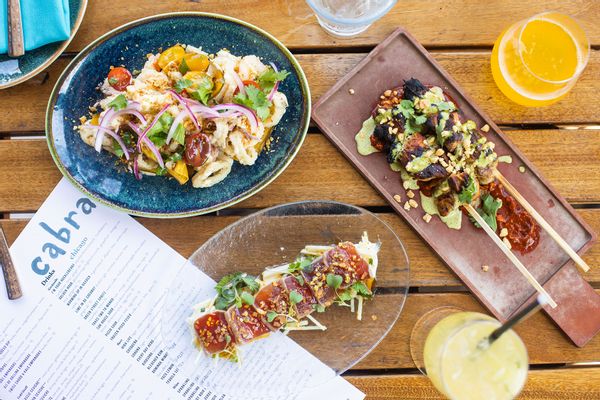
Can you tell me a bit about Cabra? Its menu, ethos, aim?
My partners at Boka Restaurant Group were about to open a rooftop restaurant and thought that bright, fun Peruvian food would be a perfect fit for it. I traveled around Peru and fell head over heels in love with the country and the cuisine. The Japanese, Chinese, Spanish and Italian flavors that are part of Peruvian food are so interesting, as well as the different dishes found throughout the country. It was a lot of fun to come back to Chicago and put my own spin on it — and to do it again in Los Angeles.
With multiple television competition show wins, James Beard awards, a "Top Chef" trophy, the “Iron Chef” title — you've sort of conquered the world of food and food television. What’s next on your agenda?
Stay tuned for some fun restaurant announcements in the coming months!







